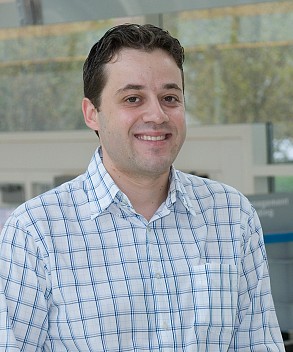Operations Management Professor Atalay Atasu’s interest in how companies manage to balance environmental and manufacturing concerns began during his Ph.D. studies at INSEAD.
At the time (2003), the European Union had just mandated producer responsibility for end-of-life-cycle products in the electronics industry. European electronics firms, thus, became his test lab, as they scrambled to balance the new costs involved in end-of-life responsibility with the low margins typical in the industry.
Since then, similar mandates have appeared in the U.S. – currently at the state level – and are expanding beyond electronics to other industries such as pharmaceuticals, paint, and carpet companies.
According to Atasu, who joined the faculty of Georgia Tech Scheller College of Business in 2007, much of this policy movement is backed by non-governmental organizations (NGOs), encouraged by what has been accomplished in Europe.
“Their [NGO] perspective is that any product that can be recycled should be,” says Atasu. His research looks at whether such approaches are always reasonable. “People in NGOs are not necessarily (and rightfully) business-minded,” he says, “and they do not have to be focused on the economic and operational efficiencies of systems.”
Devil in the Details
More often than not, Atasu’s research has shown that, despite the good intentions behind these regulations, they often backfire in practice, leading to unintended consequences.
One example is from a county in Minnesota that mandated manufacturer electronics recycling. “The new legislation required every company to recycle as many products as they put on the market the previous year,” he explains. The companies were given flexibility on what products they recycled, so if they sold 100,000 products last year, they had to recycle 100,000 products this year.
“What happened is that the companies started to cherry-pick, and they chose to recycle the more profitable and easier products—like PCs—than more expensive and more difficult products to recycle—like TVs,” he says.
In the end, mainly TVs ended up in the municipal recycling system, which was exactly the opposite of what the municipality wanted in the first place. “These bad examples help us to understand these complexities in a better way,” says Atasu, whose research looks at the fundamental issues involved in legislation in order to better inform policymakers.
Be Proactive
As for producers facing the possibility of regulations, Atasu has a key piece of advice: don’t fight it. “Eventually, some sort of regulation is going to pass,” he says. “Companies that are more proactive can do much better by setting up systems before regulation occurs.”
One industry in the U.S. that should take note is pharmaceuticals. Already on the West Coast, in an effort to reduce drug abuse, there is legislation requiring pharmaceutical companies to collect and incinerate unused drugs. “These companies are fighting it,” says Atasu, “but they really should be setting up their own systems, which will be more efficient than what legislators will propose.”
He cites the auto industry’s experience some 20 years ago when regulators became concerned about mercury-based car parts. “Instead of fighting it, the industry was proactive and came up with their own voluntary system, which was more efficient and cost-effective than the proposed legislation.”
The bottom line, says Atasu, is that if markets find a solution it’s often better than government-driven solutions. Remember, he says, once legislation passes it’s set in stone. It may take only a few hands to craft legislation, but hundreds to try to revise it. “Given this reality,” he says, “it’s best to be proactive.”
Dealing with Complex Systems
With a background in industrial engineering, including a master’s degree from Boğaziçi University in his homeland of Turkey, Atasu has long had an interest in operations and logistics, applying his combined engineering and research skills to the problems managers face when dealing with complex systems.
His research has appeared in publications including Management Science, Manufacturing and Service Operations Management, Production and Operations Management, and the Journal of Industrial Ecology. He is the recipient of a number of awards, including the Wickham Skinner Best Paper Award (winner 2007, runner up 2014), Wickham Skinner Early Career Research Award (2012), and Paul Kleindorfer Award in Sustainability (2013).
He serves as a senior editor for POMS' Sustainable Operations, and Industry Studies and Public Policy Departments.
